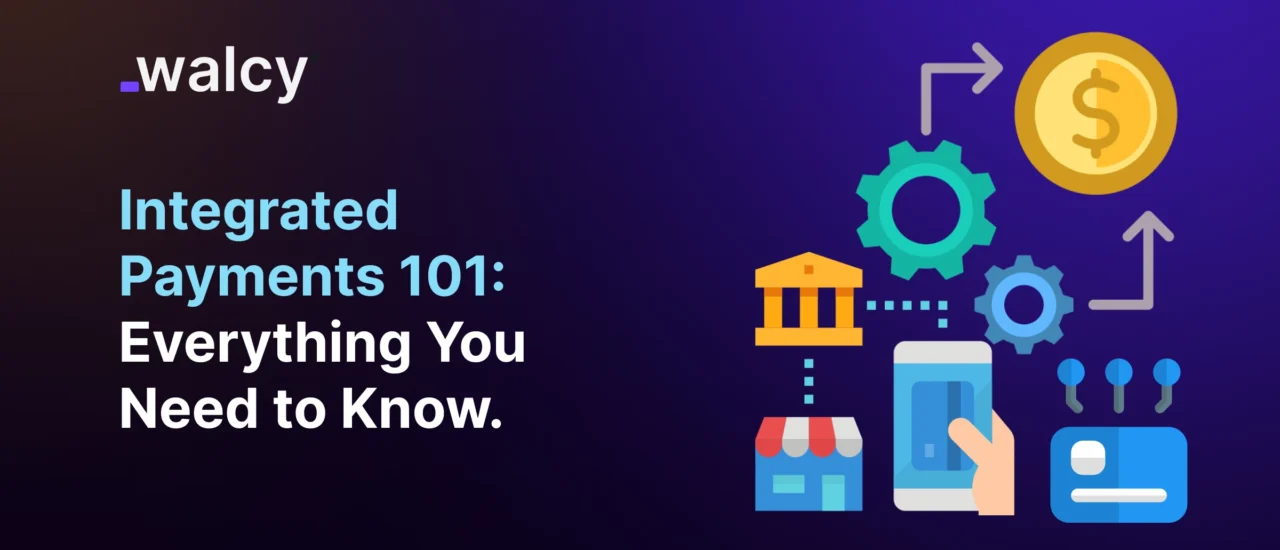Convenience, speed, and efficiency are some of the attributes that characterize business operations in this technologically propelled modern world. Of course, it needs integrated payments.
Be it an e-commerce outlet, a service-based establishment, or a brick-and-mortar retail concern, understanding integrated payments can rebrand the operations of your business enterprise as far as efficiency, customer experience, and profitability are concerned.
What Are Integrated Payments?
Integrated payment refers to seamless integration between any payment processing system and other critical software of a business, such as accounting or inventory management systems.
In such a context, the process of making a payment is automated and recorded correctly in favor of minimizing additional manual inputs and reducing chances of errors to enhance operational efficiency.
Opting for an integrated payment solution allows linking different platforms through one point of unifying payment experience both for the company and its customers.
Besides being seamless, it allows financial information to be updated simultaneously in each integrated system. Companies can save a lot of time by doing manual reconciliations and thus avoid resultant errors.
In such a way, integrated payments enable scalability, which lets companies grow freely without extra complexity.
How Do Payment Integration Services Work?
In simple terms, payment integration services provide API connectivity between the payment gateway and existing business software.
When your business is running a CRM or an accounting tool, for example, the payment system integrates into these using automatic tracking and managing every transaction.
Be it PayPal payment integration or ACH payment integration, the bottom line of any online payment processor should provide seamless frictionless transaction experiences.
These services range from supporting various ways of making payments, such as repeated payments, to providing custom checkout experiences. They can also apply fraud prevention measures; these will go a long way in protecting businesses and their customers from fraudulent open transactions.
Many of these services offer automated invoicing, a factor that greatly simplifies the whole billing process and reduces manual errors. Advanced analytics and reporting are available from some of these providers; this shall help businesses understand consumer behavior and trends in payments.
Accordingly, this will allow businesses to work out an improvement in their payment systems toward achieving maximum performance and customer satisfaction.
Benefits of Integrated Payment Solutions
The advantage of an integrated payment solution goes much beyond convenience. Some of the major benefits of this include:
Increased Efficiencies:
No manual reconciliations are required, and there is no tracking for discrepancies in payments. By automating data entry and synchronizing information between systems, it saves time by reducing the likelihood of human errors.
Increased Speed:
Faster transaction times boost cash flow and customer satisfaction. Real-time updates provide instantaneous transaction processing, upgrading the customer experience.
Better security:
Advanced encryption in the integrated systems further reduces fraud risk. They guarantee compliance with various industry standards like PCI-DSS, hence more peace of mind.
Enhanced reporting:
Automatically generated reports on cash flow and sales trends enable better financial planning. Detailed analytics for growth opportunities can be derived to make better operational decisions.
Cost savings:
It means cost savings since integration in one system reduces the dealing with a sea of third-party services and thereby consolidates fees, reducing operation expenses. Automation also reduces labor costs related to manual processes.
Scalability:
As businesses grow, integrated systems can handle an increased volume of transactions without requiring significant upgrades. The flexibility afforded by integrated solutions allows companies to grow without the fear of outgrowing their payment infrastructure.
Better Customer Experience:
One would be assured of a smooth checkout experience and would have multiple options available for making the payment. Customers’ loyalty would probably improve, as would the conversion rates among online businesses.
Choosing the Right Payment Integration for Your Business
Choosing the proper payment integration solution will play a significant role in enhancing your business through improved efficiency and customer experience. To make the right choice, consider the following factors:
Payment methods supported:
Types of payment-supported options from credit cards to digital wallets and ACH transfers should be supported by the system to increase customer satisfaction and reduce cart abandonment.
Security features:
Advanced encryption, tokenization, and PCI-DSS compliance provide fraud prevention and security for customer data.
Ease of integration:
Select the capacity that will match whether plug-and-play is used at a premium or complex customized solutions that need technical acumen to fulfill business needs.
Cost:
Setup and transaction fees are just two considerations that must be scrutinized with the chosen solution to make an appraisal on whether it fits your budget without sacrificing essential features.
Scalability:
This means the system will grow with your business, handling increased transactions that accompany an expanding operation.
Customer support:
Find a provider that will give you good, responsive support to quickly resolve any problems.
Read about: International Payment Fraud: Ultimate Guide For Businesses.
How Integrated Payments Improve Customer Experience
A seamless payment process is crucial to the satisfaction of a customer.
Integrated payments come in very vital in enhancing that experience; this is because integrated payment solutions enable speedy checkout, multi-payment options, and improved accuracy for customers.
The convenience reduces friction at the point of purchase, implying customers will move out of a purchase and into repeat business.
Besides, integrated payments allow for the storage of customer preferences regarding payments and, therefore, may offer one-click or recurring payments without asking the customer to enter the details every time.
In this way, not only is the check-out process accelerated, but the possibility of mistakes or failed transactions is minimal, which leads to smoother and more reliable experiences. On top of that, integrated systems give much more customer support in real-time, updating transactions and thereby making problems easier to solve.
This fosters the building of trust with your clients and leads to customer loyalty. In general, the ease and efficiency of payments integrated provide for high retention and satisfaction.
Read about: What is Recurring Billing? Key Benefits Explained
Conclusion
Integrated payment solutions have become a must for businesses that require higher operational efficiency and customer experience.
Integrated payments will make the gap between the systems of payment and other crucial business software almost invisible, reducing manual processes and increasing security and smoothness in transaction processing.
They offer flexibility, scalability, and valuable insights through automated reporting; hence, they are a powerful tool for all types of business.
From making recurring payments a breeze with ACH to opening your options to speak to a worldwide audience with PayPal, the right payment integration can revolutionize your processes and help increase customer satisfaction, along with business growth.
FAQs
- What is integrated payment?
Integrated payment links a computerized payment system with any other business software, making the process of receiving payments completely automated, recording payments automatically in the system.
- How does an integrated payment enhance business?
It enhances efficiency, security, and operational processes, thereby enhancing reporting.
- What are the various methods by which payments can be integrated?
Credit cards, ACH transfers, digital wallets, and platforms such as PayPal.
- Are integrated payments secure?
Yes, most systems use encryption, and tokenization, and are PCI-DSS compliant to protect transactions.
- Will integrated payments grow with my business?
Yes, integrated payment systems allow for growth and expandability as your business increases transaction volumes.
Do follow us on Facebook and LinkedIn, to stay connected with us.



